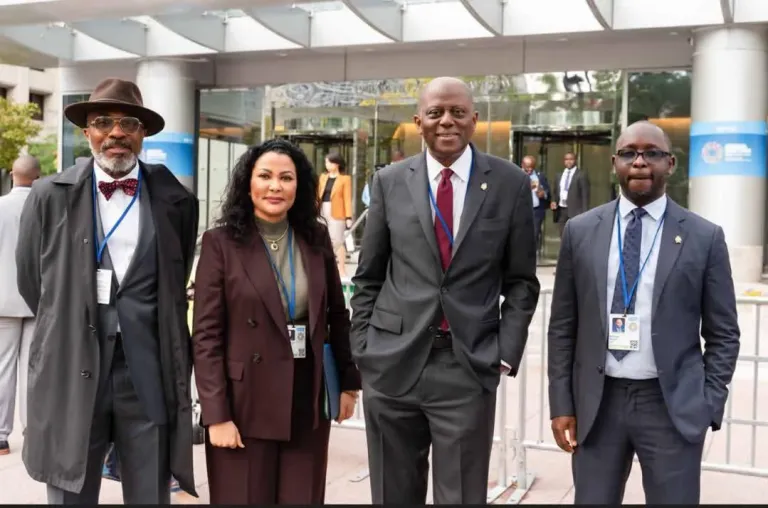Nigeria’s rise to the chairmanship of the Intergovernmental Group of Twenty-Four (G-24) is a game-changer.
Taking the baton from Argentina in October 2025, Nigeria steps into a pivotal role, representing the Global South in shaping international finance. This isn’t just a title it’s a chance for Nigeria to lead, unite, and push for change in a world often swayed by richer nations. From Lagos to global boardrooms, excitement is high, but so are the stakes.
This leadership marks a defining moment for Africa’s economic ambitions.
The G-24’s Role
The G-24 unites developing nations from Africa, Asia, and Latin America to amplify their influence in global bodies like the IMF and World Bank. It’s a platform where smaller economies fight for fair policies in a system often tilted toward wealthier powers.
Nigeria’s leadership puts it at the helm of this coalition, setting priorities, guiding talks, and advocating for 24 member states facing diverse economic challenges.
As chair, Nigeria holds the megaphone for the developing world’s dreams and struggles.
Nigeria’s Bold Vision
At the handover in Washington, D.C., Nigeria’s Finance Minister and Central Bank Governor unveiled a plan for inclusive reform. They vowed to craft a Work Programme that reflects the needs of all members, from debt-burdened nations to emerging markets.
Nigeria aims to champion fairer lending terms, climate funding, and economic equity, drawing on its own battles with inflation, currency woes, and inequality.
With Africa’s largest population, Nigeria’s voice carries weight and promise.
Strengths on the Table
Nigeria brings real-world experience to the G-24. Its struggles volatile oil exports, fiscal pressures, and social gaps—mirror those of many developing nations. This gives Nigeria credibility to push for flexible debt solutions, better access to affordable loans, and support for economic reforms.
Its recent push for digital banking and youth-led startups also positions it to advocate for tech-driven growth across the Global South.
Nigeria’s challenges make it a powerful advocate for change.
Hurdles Ahead
Leading the G-24 isn’t easy. Nigeria must balance its own goals with the diverse needs of 24 nations, from resource-rich Algeria to fragile economies like Haiti. Critics question if Nigeria can stay neutral and avoid favoring its own interests.
At home, Nigerians demand results, not just prestige. Diplomatic skill is key to avoid squabbles and unite members in tough global talks.
Failure to deliver could dent Nigeria’s global standing.
Africa’s Opportunity
For Africa, Nigeria’s role is a golden chance. It can elevate issues like debt relief, climate adaptation funds, and trade fairness on the global stage.
By building African alliances, Nigeria could help smaller nations like Uganda or Ghana gain clout at the IMF and World Bank. A united African front could push for more resources and tech access, boosting the continent’s growth.
Nigeria’s leadership could spark a new era of African influence.
A Global Test
Nigeria’s G-24 chairmanship is a high-stakes stage. Success could cement its role as a leader for developing nations, earning trust and respect. Missteps might fuel doubts about its readiness.
The world is watching as Nigeria navigates this role, aiming to reshape global finance for fairness. Will it rise to the challenge? Africa and beyond are rooting for a bold, united future.
READ MORE: Russia Slams Trump’s Oil Sanctions, Warns of Ukraine Talks Risk




















